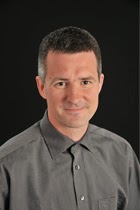 |
| Medication cupboard |
When we arrived we were shown around the ward and were immediately struck by the extremely poor conditions the doctors and nurses were working in. Although the walls were painted in bright colourful murals the lack of resources, beds and facilities were painfully obvious to see. Drips hung from windows medication cupboards poorly stocked
Queues to see admissions were so long they spilled onto the grass outside in the blazing sun no shade to for them to escape.
We split up and one was sent to the acute ward the other to admissions:
Jayne - Acute Ward
I cannot put into words the sadness I feel after today. Children desperately ill with malnutrition, AIDs and malaria to name but a few. Parents shared beds with there children those not so fortunate to have a bed on mattresses on the floor. The piercing cry of many as procedures were carried out without any pain relief, will stay with me forever. Nurses stretched to the limit with no time to stop and talk to the patients. However among the sadness were glimmers of hope as children were being discharged, premature babies thriving despite the lack of resources. With a world so full of riches should innocent children really have to suffer?
 |
| Our intrepid students |
Whilst I sat in the admissions department I noticed on the examination bed was a bundle of quilts and covers. I could not believe my eyes as part of the cover began to move 'is there someone under there?' I asked. Yes!! Three premature babies delivered during the night and they were perfectly content and seemed healthy being given a course of antibiotics to prevent infection. This staff were so busy and overworked yet managed so well with the resources and situation at hand.
Next stop maternity....






